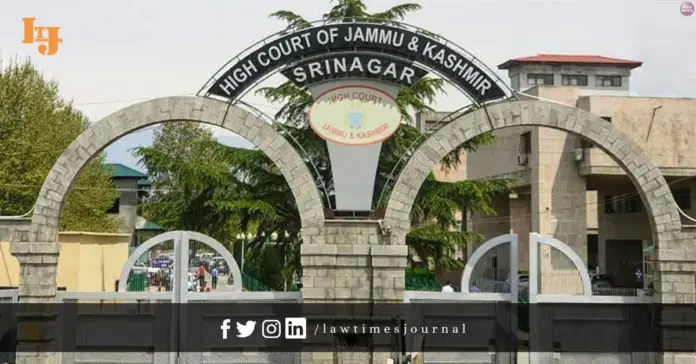
Case – J&K High Court Bar Association. v/s Union of India & Ors.
Case no.- PIL No. 14/2016 and CM No. 527/2020
Coram – Hon’ble Mr Justice Ali Mohammad Magrey, Judge.
Hon’ble Mr Justice Dhiraj Singh Thakur, Judge.
Pellet guns are not a proportional response to the current protests. Far too much harm has been inflicted, particularly involving people’s eyesight, far too many bystanders, including children, have been injured. Protests in Kashmir have primarily involved stone throwing from demonstrators, with police and security force personnel responding with gunfire from firearms or pellet guns. The indiscriminate and excessive force used by state forces in Kashmir has no parallel anywhere in India.
Since July 9, 2016, in the aftermath of the killing of Hizbul Mujahideen leader Burhan Wani, large scale protests and funeral gatherings have been taking place across the Kashmir Valley. The apparently indiscriminate use of allegedly “non-lethal” weapons like pellet guns to control crowds has resulted in severe damages. In furtherance of a Public Interest Litigation an application was filed by the Association of Pellet Survivors through its President, Aamir Ahmad Band S/o Nazir Ahmad Band R/o Puchal, Pulwamain which members had sought to be included as interveners in public interest litigation (PIL) seeking a ban on the pellet guns in Kashmir.
To this the coram of comprising Justices Dhiraj Singh Thakur and Ali Mohammad Magrey rejected the application and said “We feel that there is no scope for allowing the applicant claiming to be the President of Association of Pallet Survivors, to intervene in the matter as the interest of alleged pellet victims is already being pursued by the Ba rAssociation in the PIL. In that view of the matter, the application being unnecessary, shall stand rejected.”
Regrettably, the current state of law in India grants government officers impunity for even the most serious human rights violations, including the current pellet attacks and breakdowns in crowd control procedure. The Indian Criminal Procedure Code (CrPC) produces de facto immunity for police officers, members of the armed forces and other government officials. Section 197 of the CrPC says that no court has jurisdiction over an alleged criminal offence committed by a government official “while acting or purporting to act within the discharge of his official duty”, without first obtaining authorisation from the requisite central or state government.
Ironically, the same day that Burhan Wani was killed, the Supreme Court of India made a decision in Extra Judicial Execution Victim Families Association v. Union of India discussing fake encounters in Manipur and “the illegality of the use of excessive and retaliatory force by the army, security forces and police”. The Supreme Court noted that the rule of law applied “even when dealing with the enemy”. This commitment, however, is breached everyday in Kashmir.
Edited by J. Madonna Jephi
Approved & Published – Sakshi Raje








